Another Tottenham home game, and another fightback from Ange Postecoglou’s side to take the three points.
Sunday’s 4-1 win over Aston Villa was the eighth time this year that Spurs have recovered from conceding first to win at home in the league – equalling Newcastle’s all-time Premier League record from 2002 – and the 24 points they have picked up from those situations is 10 more than any other top-flight team in 2024.
In an ideal world, Tottenham would not be in a position where they are trailing in the first place, but for them to keep on getting themselves out of a hole shows more than just a real resilience and strong mentality.
Every time they come back to win, their players demonstrate that they can cope with the expectations that I know you face whenever you play in front of the Spurs fans, and also deal with the added pressure you get when things go wrong.
But, furthermore, their success reinforces their belief that their style of play, where they aim for high levels of possession and look to dominate the ball and really go at the opposition, is working.
One of the reasons I believe they have this record at home is because of Postecoglou’s philosophy – Spurs wear defensive-minded away teams down with their quality in possession and their constant push to try to win the ball back high up the pitch.
They don’t panic anymore when things don’t go to plan, and that’s why we see them regularly overcome setbacks without too many problems, just like they did against Villa.
There is a separate conversation to be had about whether their boldness should sometimes be adjusted away from home, especially if they are in the lead or have something to protect.
But it is undoubtedly a hugely positive part of their home play because, in the majority of those games that I have seen this season, they have produced dominant attacking performances and, eventually, got their reward.
They have won four out of their five league games at the Tottenham Stadium, scoring 15 goals in those four games. The one match they lost, against Arsenal, was the only time they did not create as much as they would like but, even then, they still controlled the game for long periods in terms of possession and territory.
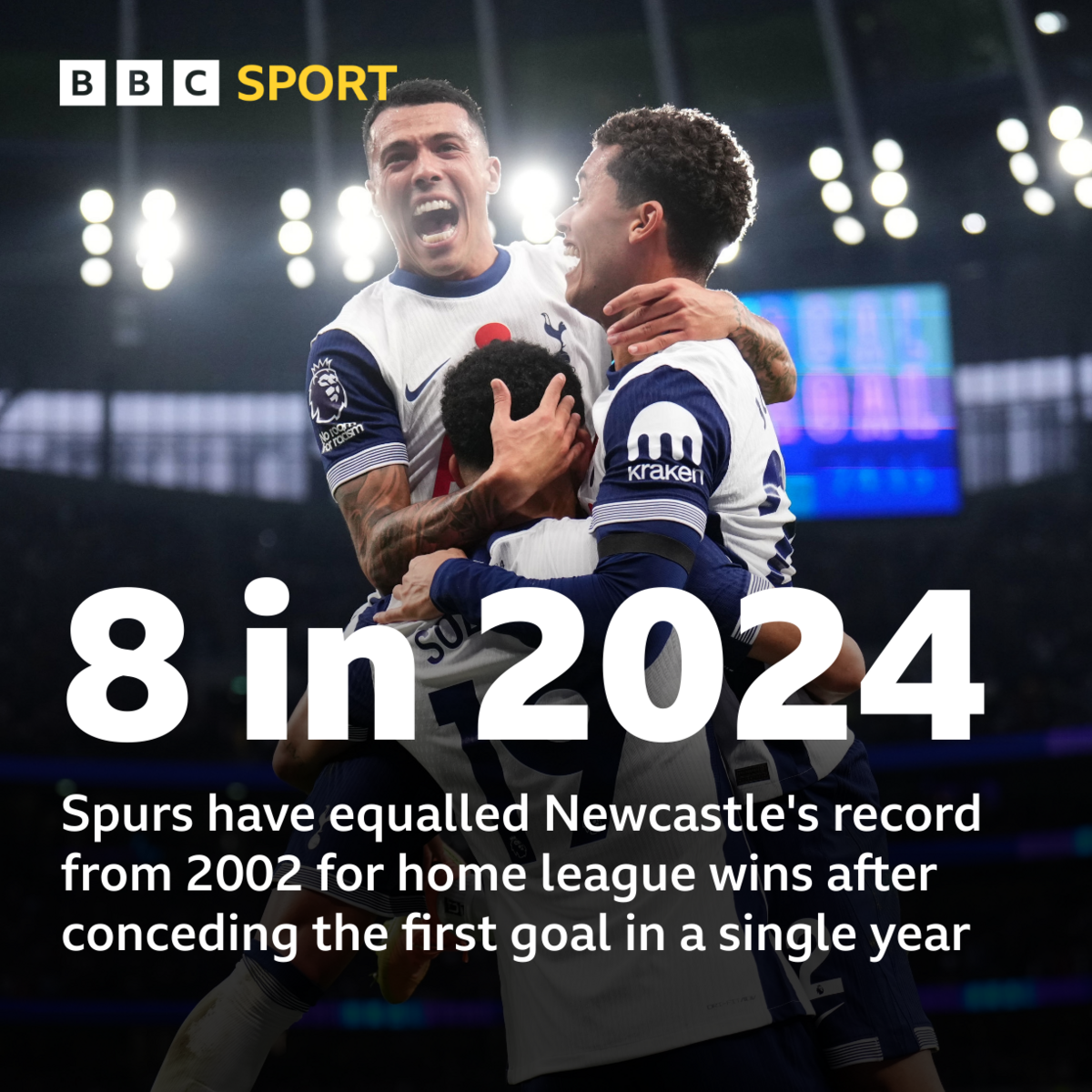
Spurs have conceded the opening goal in 12 of their 14 home Premier League games in 2024 but recovered to win on eight occasions and pick up 24 points, 10 more than any other team. Away from home they have earned only one point from losing positions this year, giving them a total of 25 points. Manchester City, with 26, are the only team to have gained more in the same period
First half: Spurs are too narrow
Tottenham were 1-0 down at half-time against Villa, but it was not down to them playing badly.
They will be disappointed with the goal they conceded, from another corner, but they had actually done really well at the back despite being without the injured Micky van de Ven, whose pace makes him a key man when they keep a high defensive line.
Their problems were at the other end of the pitch, where they kept getting into good positions but were unable to create any clear-cut chances.
They were too narrow, which is something I see from Tottenham quite a lot, because their full-backs, Destiny Udogie and Pedro Porro, like to come inside when they get forward and don’t often find themselves in wide positions, overlapping their wingers.
That happened a lot in the first half against Villa, for example on the left. So, because John McGinn was so willing to help Matty Cash out on that flank, Son Heung-min was forced inside where Villa had even more numbers.
Udogie was high up the pitch but he wasn’t in a dangerous position so he wasn’t affecting play. It was a similar story on the other side, and because Porro also ended up inside of Johnson, Tottenham did not have any width whatsoever.
There were times when Spurs had no-one wide outside of the 18-yard box, and that made it much easier for Villa to defend against them. Unai Emery’s side could stay really compact, and you need to do something really special to play through a team set up like that.
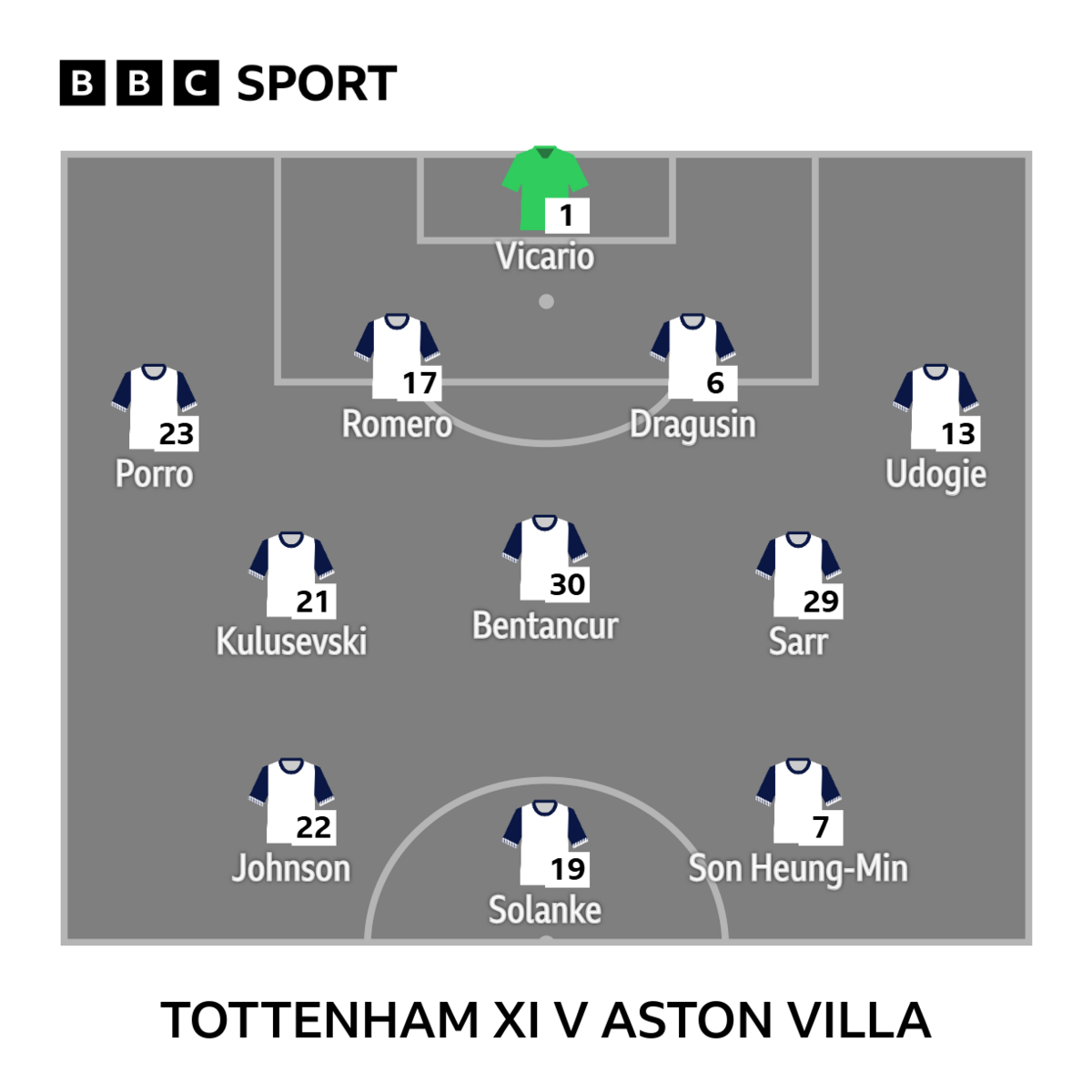
Second half: Tottenham make a tweak
When I signed for Liverpool I had the good fortune of being around Ronnie Moran, a club legend who was there for almost 50 years and coached under nine managers, starting with Bill Shankly.
Teams would come to Anfield and sit in and he used to say to me that if you can’t go through the middle of them then you go around the outside. He would tell me to switch the ball quick, keep it moving and get some crosses in.
It sounds simple but not enough teams do it, and you don’t even need wingers who can dribble. David Beckham and Gary Neville at Manchester United are the best example of two wide players who had a relationship where they didn’t need to beat people to get crosses in – sometimes Neville would overlap and deliver the ball, sometimes he would make a run just to give Beckham space to whip in a cross.
In the second half, Udogie started doing exactly what Neville used to do, and it worked. There was an obvious change in the runs he made, because now he was going around the outside of Son and dragging McGinn with him.
That is where the first goal came from because Cash was aware of Udogie, and gave Son a fraction more space when he dropped off to deal the overlap. That meant Son was able to whip the ball in – it was a brilliant cross too – and Brennan Johnson got on the end of it to equalise.
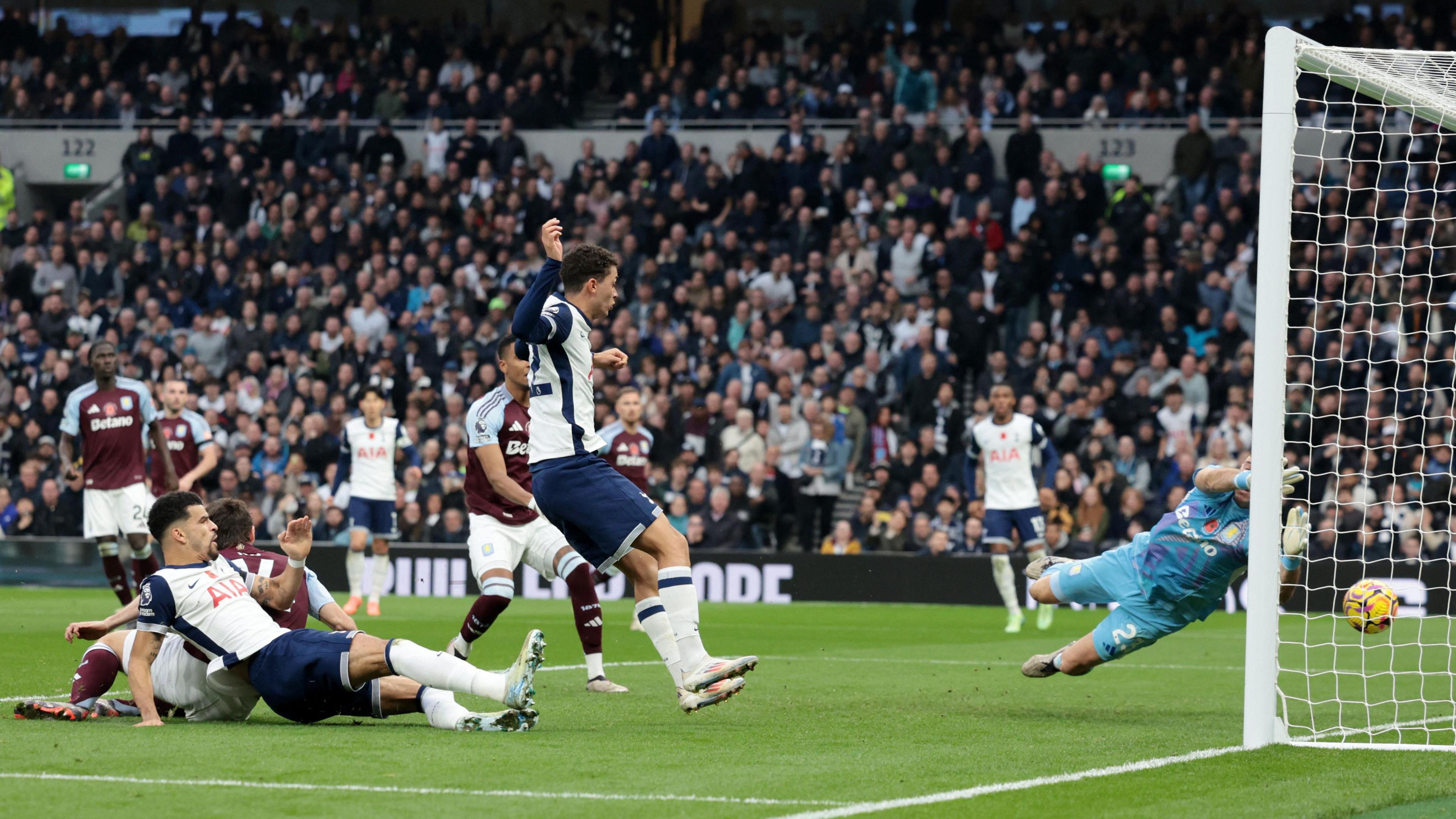
Johnson equalised for Tottenham in the 49th minute
A minute later, Spurs were in the same situation, but this time Udogie was played in down the outside. He pulled the ball back and Dominic Solanke nearly scored.
Suddenly Villa had some very different problems to solve, and it was not so easy for them to defend so deep any more.
It was slightly strange when Son was substituted before the hour mark, just when he and Udogie had started linking up so well, but he had missed six of Spurs’ past seven games through injury so I am sure there was a reason for it.
Still, it was that tweak that got Spurs back in the game, and although they lost some of their momentum when Son came off, they soon showed their class to go on and win it.
It was a wonderful little pass by Dejan Kulusevski to put Solanke in for their second goal with 15 minutes left, which takes me back to my original point about how Tottenham wear teams down.
That constant, persistent pressure paid off against Villa because tiredness had taken its toll.
Fatigue is a factor when you face Spurs because although Villa did not leave any gaps at the back before the break, it only takes one lapse – and one quality ball – to let them in.
The day Solanke showed Spurs who he is?
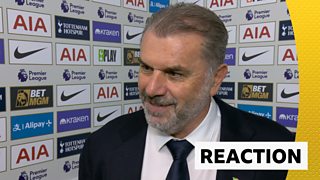
02:13
Tottenham Hotspur 4-1 Aston Villa: Ange Postecoglou praises ‘unbelievable’ Dominic Solanke
The whole Tottenham team got the result they deserved against Villa, but I was particularly pleased that Solanke was rewarded for such a fine individual performance with two goals.
He joined Tottenham for £65m in the summer off the back of a wonderful campaign for Bournemouth but made a stuttering start this season with Spurs, which can happen.
All players need a bit of time to settle at a new club, but I think a few fans questioned whether he was the right signing or too expensive because he missed a chance against Arsenal in his first game back after an injury, and some people judged him off that.
I never really had too many doubts about him because, every time I saw him play this season, his link-up play was good and his work off the ball was phenomenal – his pressing is as good as there is in the Premier League and probably one of the reason Spurs wanted him.
I love seeing someone work so hard but I think the other reason he has so many admirers is that he is not a whinger, a diver or a cheater, when a lot of modern-day forward players are. Someone might read this and say well I saw him do this or that last year, and there might be the odd occasion, but my point is it is not part of his game.
So, there is a lot to like about Solanke but as we all know, strikers are ultimately all judged on goals, which is why Sunday was so important for him after going six games without one.
If it had not happened already, this was the day Tottenham fans kind of took him in and he showed them exactly the player he is.
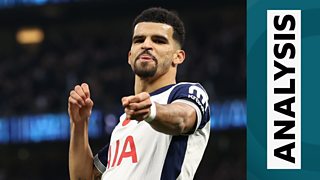
02:45
MOTD 2: Solanke stars in victory against Aston Villa
I heard them singing his name after his first goal, and again after his second one too, and if they did not fully appreciate him before this game then they definitely do now.
He epitomised the team’s work ethic and blended that with a brilliant centre-forward’s display in front of goal.
I understand why there is always going to be criticism of this Spurs team when they keep trying to play in such a positive way and lose, because there is a constant conversation around whether Postecoglou’s philosophy means there is only one way they can play.
The debate about whether they need to adapt will continue but, right now, when you see the chances they make, it is perfect for Solanke. He is going to get chances playing in this system, and he is good enough to take them.














Leave a comment